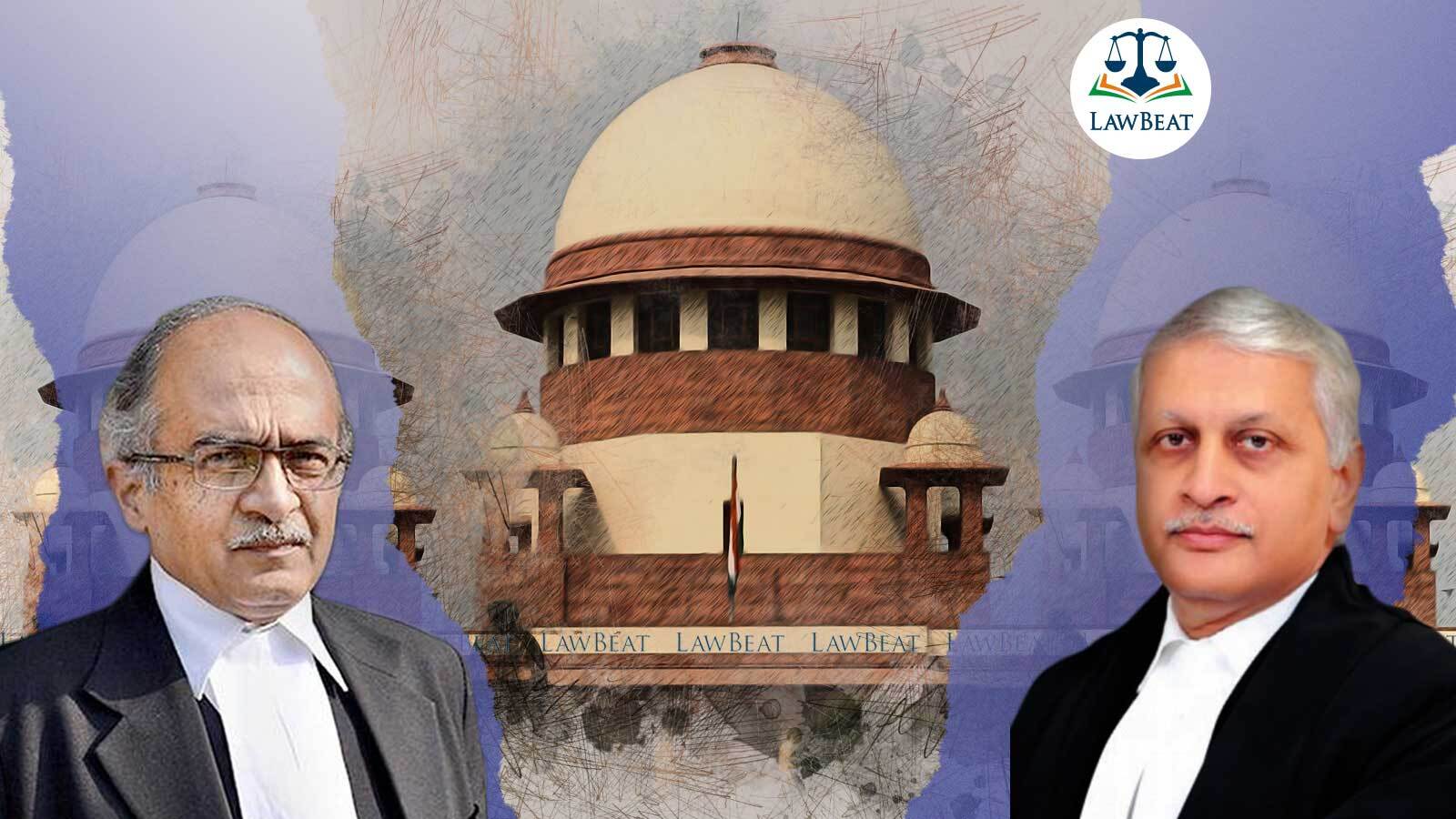Justice UU Lalit asks Sr Adv Rajiv Dhavan to file affidavit stating they have no objection to him hearing Advocate Prashant Bhushan's contempt matter

While hearing the plea raising issue whether an appeal can be heard in a criminal contempt conviction by a larger or different bench, Justice UU Lalit has asked Dhavan to submit an affidavit stating that they have no objection to him hearing the matter.
Justice Lalit on Friday told that he had been appointed as an amicus Curie in the Tehelka Contempt matter where Advocate Prashant Bhushan was accused. "So should I hear the matter or not," Justice Lalit asks Senior Advocate Rajiv Dhavan appearing for Bhushan.
However, Senior Advocate Rajiv Dhavan appearing for Bhushan said that Justice Lalit may hear the matter as the current matter is entirely different.
In furtherance of this, the bench has asked Dhavan to file an affidavit concerning the same and listed the matter for hearing next Tuesday, May 17, 2022.
The bench was hearing a plea filed by Advocate Prashant Bhushan seeking direction declaring that a person convicted in an original criminal contempt case by the apex court would have a right to an intra-court appeal to be heard by a larger and different bench.
The plea has stated that the Supreme Court, "has in the past framed special rules to deal with cases concerning the death penalty and has also devised special remedy in the nature of ‘Curative Petition’ against a final judgment of the Supreme Court on certain limited grounds."
The plea has further sought direction laying down rules and guidelines over the issue or in the alternative, a direction declaring that review petitions filed against orders of conviction by the Supreme Court in original criminal contempt cases would be heard in open court by a different bench.
It has been stated that "The Petitioner is filing this writ petition in order to bring important procedural safeguards when this Hon’ble Court considers cases of criminal contempt in original proceedings, i.e. those proceedings where this Hon’ble Court does not act as an appellate Court. In such cases, considering the fact that there is inherent unavoidable conflict of interest involved, and the fact that liberty of the alleged contemnor is at stake, it is of utmost importance that certain basic safeguards are designed which would reduce (though not obviate) chances of arbitrary, vengeful and high handed decisions."
Cause Title: Prashant Bhushan Vs. Union of India & Anr
